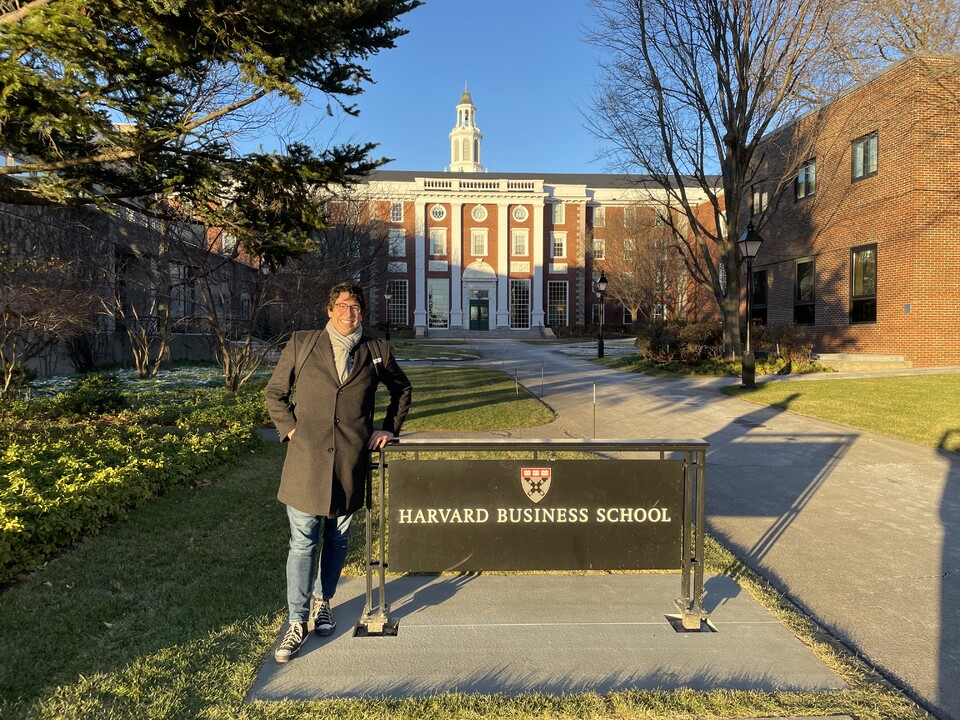A letter from Boston: What’s behind the growth of Entrepreneurship through Acquisition around the world?

December 15, 2022
by an investor from IE University in São Paulo, State of São Paulo, Brazil

(8 minute read)
“Newton, I’m sorry to say that, but Search Funds are not something new as you think.” I heard from a couple of seasoned and slightly arrogant Private Equity investors recently. I know, man, we all know. After researching, teaching, and investing in Search Fund entrepreneurs all over the world for almost 10 years now, we know exactly the schools, the professor (Irving Grousbeck), the students, the classrooms and even the bars where modern Search Funds started far back in the 1980’s. But apart from that, I’d like to share with you some thoughts about what I just witnessed, learned, and conjectured in December 2022, after a week of conferences and talks about the latest on Entrepreneurship through Acquisition (EtA) in amazing think tanks like Tuck, Babson, MIT and Harvard. All of this took place here in the Boston area, one of those very few historical places where modern Capitalism was born and conceptualized since 200 years ago.
First, let’s get back to the basics. Prof. Joseph A. Schumpeter (###-###-#### ), the so-called “father of Entrepreneurship” discovered, almost 100 years ago, initially in Vienna (1900’s), and later in Boston at Harvard University (1930’s), that entrepreneurs constitute a fundamental engine of Capitalism. They are basically rewarded both socially and economically by the system, for having come up with something perceived as new; normally cheaper, faster, or better than whatever existed before.
In the five classic Schumpeterian definitions of what makes an entrepreneur an entrepreneur we find an often overlooked classification: reorganizing a company or an industry in a new way. According to Schumpeter, this was the most complex and sophisticated way to become an entrepreneur, frequently involving larger amounts of capital and also mergers, acquisitions, or industry consolidations.
When generating new fresh capital, entrepreneurs either grow organically or by attracting old capital to finance the growth of this new one. This process was not very well known or structured until Prof. Georges F. Doriot (###-###-#### ), the so-called “father of Venture Capital”, developed this now consecrated method of identifying and financing entrepreneurs also in Boston, and not coincidently also at Harvard University (1950’s).
And here we are, at Harvard University once again, about 100 years after Schumpeter and about 50 years after Doriot. We gathered, for the first time, professors of Entrepreneurship through Acquisition to exchange best practices, understand why this distinct form of Entrepreneurship mixed with Private Equity and Venture Capital is growing all over the world and how can we help entrepreneurs and investors to exercise this way to obtain entrepreneurial achievement in positive way for all.
Here I share some of our key conclusions, mainly for those who couldn't come:
1) We still don’t know why Search Funds are growing faster after the 2010’s. It might be a combination of more businesses without succession (aging population), more capital available for Alternative Investments, the existence of better trained and more sophisticated entrepreneurs, the exhaustion of the risky Startup fever or the abundance of more sophisticated M&A service providers (lawyers, accountants, brokers, etc). More research is needed to unveil these reasons properly.
2) Talking about teaching and research, only some 15 top business schools in the world teach Entrepreneurship through Acquisition today and 5 more as expected to do so in the next couple of years. We have a very limited number of books, cases, dissertations, or research material to understand and teach the phenomenon. We need more business schools and more faculty members to be involved with this emerging field.
3) Entrepreneurship through Acquisition defies traditional academic structures and research frameworks because it mixes multidisciplinary topics like Finance, Entrepreneurship, Strategy, Organizational Behavior, Law, Marketing and Negotiation, all at once! Therefore, new collaborative academic structures and collaborative research methods must emerge to allow researchers and professors of all these areas to cooperate.
4) Sustainability and ESG is yet to be integrated with Entrepreneurship through Acquisition. Although developing fast in the Investment and Private Equity arenas, in Search Funds the topic is yet almost inexistent. My own recent research about Search Funds in Latin America showed that only 5% of acquired companies actively exercise ESG in the region.
5) There is a huge lack of diversity in Entrepreneurship through Acquisition, as most entrepreneurs and investors tend to come from Private Equity, Investment Banking, Entrepreneurship, Strategic Consulting, and similar industries, still predominately comprised of white males. We must actively change that by bringing diversity, equity and inclusion to this emerging community, specially while it starts to expand.
Finally, we concluded that further cooperation among business schools and Entrepreneurship through Acquisition community members is needed for this conversation to continue and evolve in a positive way to entrepreneurs, investors, and society.
Prof. Dr. Newton M. Campos
Adjunct Professor of Entrepreneurship at FGV and Visiting Professor of Entrepreneurship at IE Business School (IE University).
Observation: Opinions reflect only the limited conjectures of the author and can’t be attributed to any university, business school or conference he is or was part of.